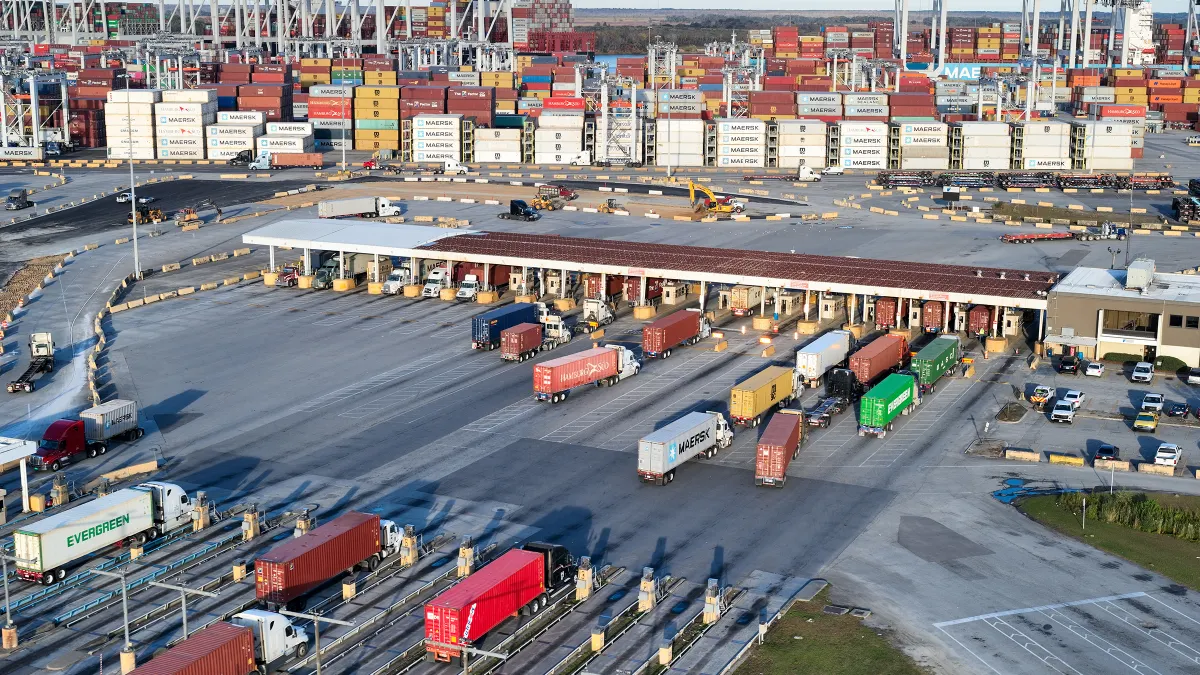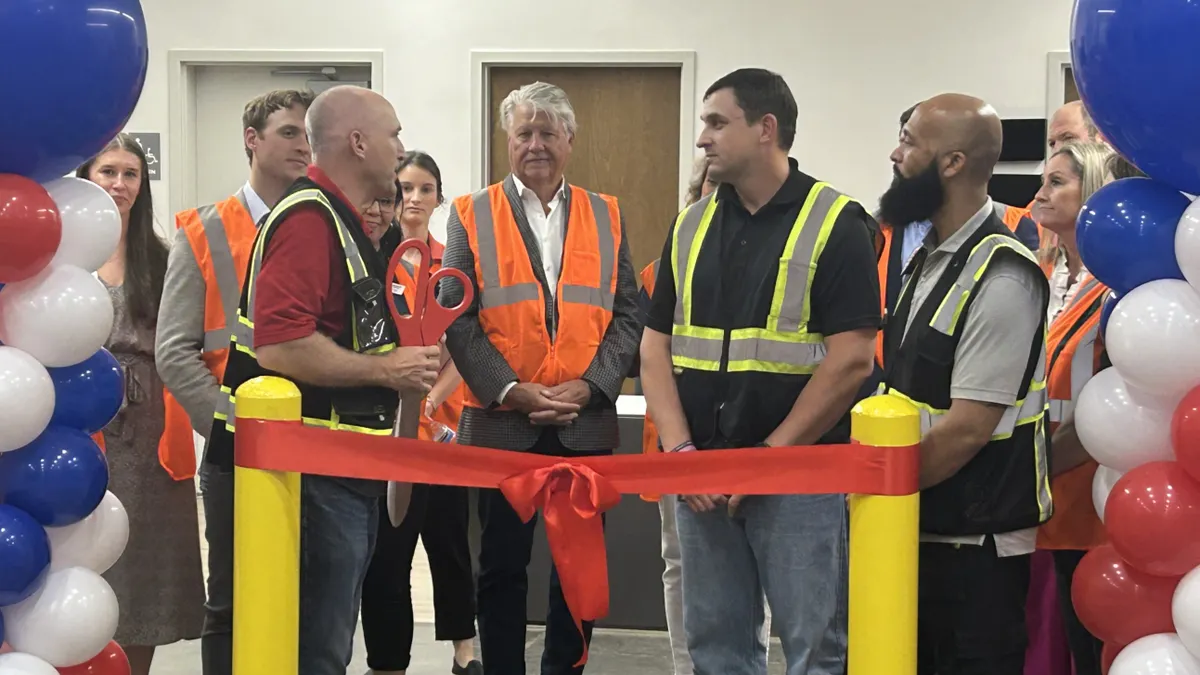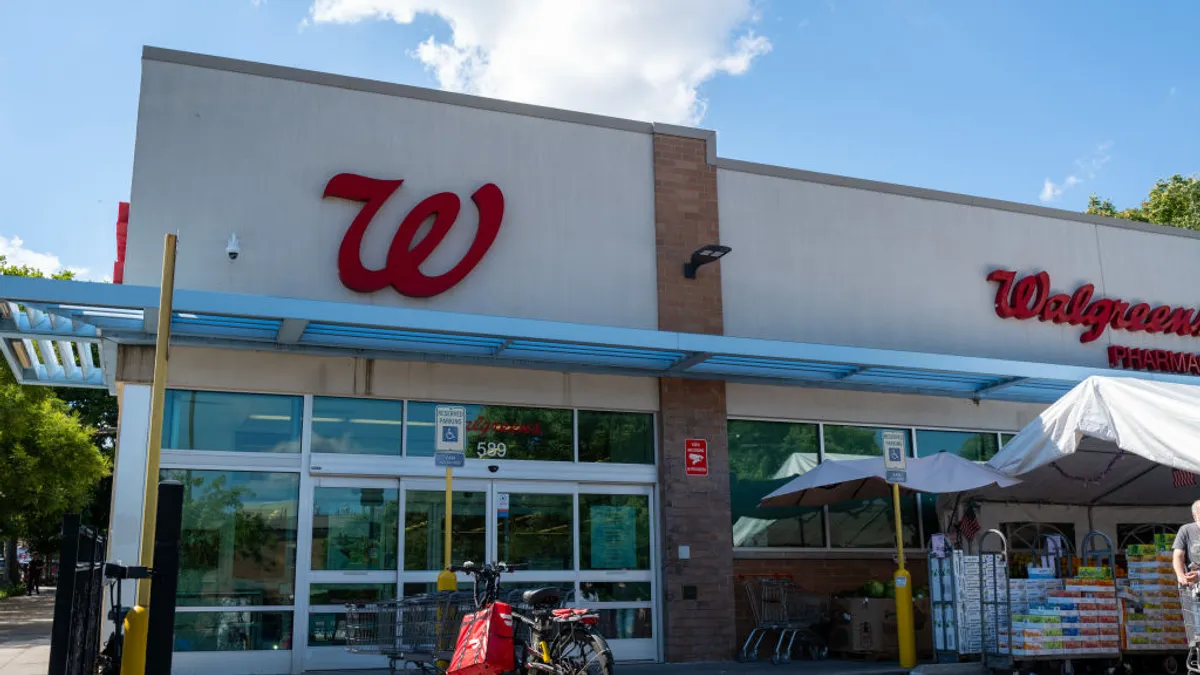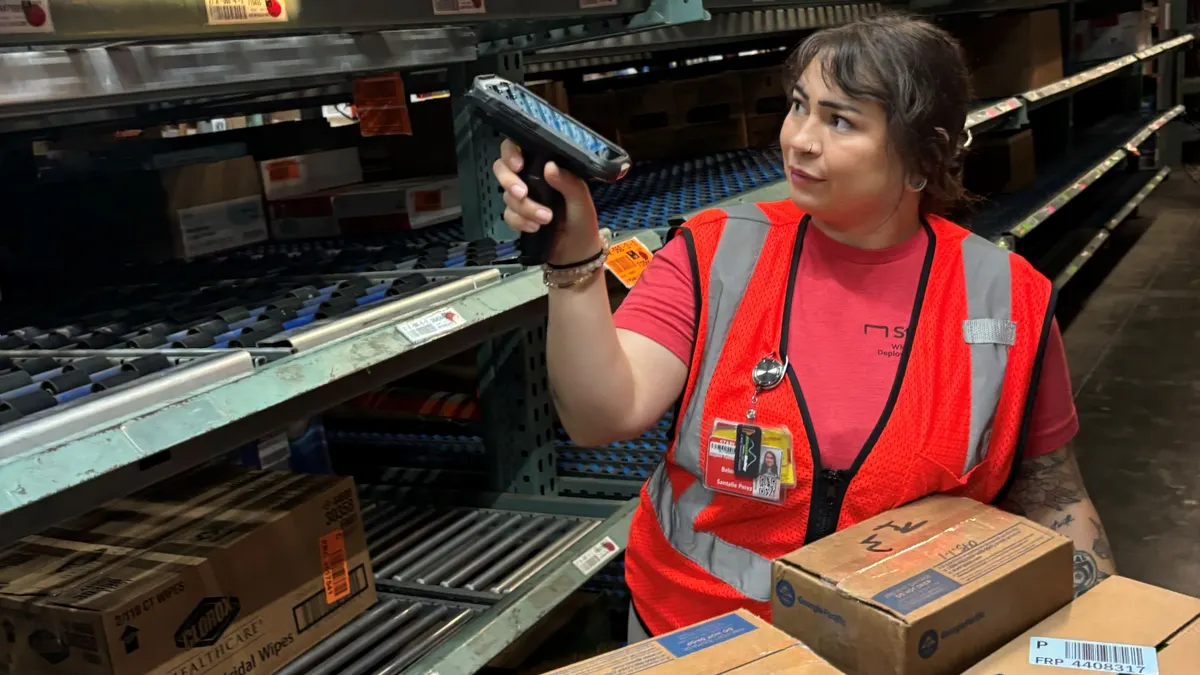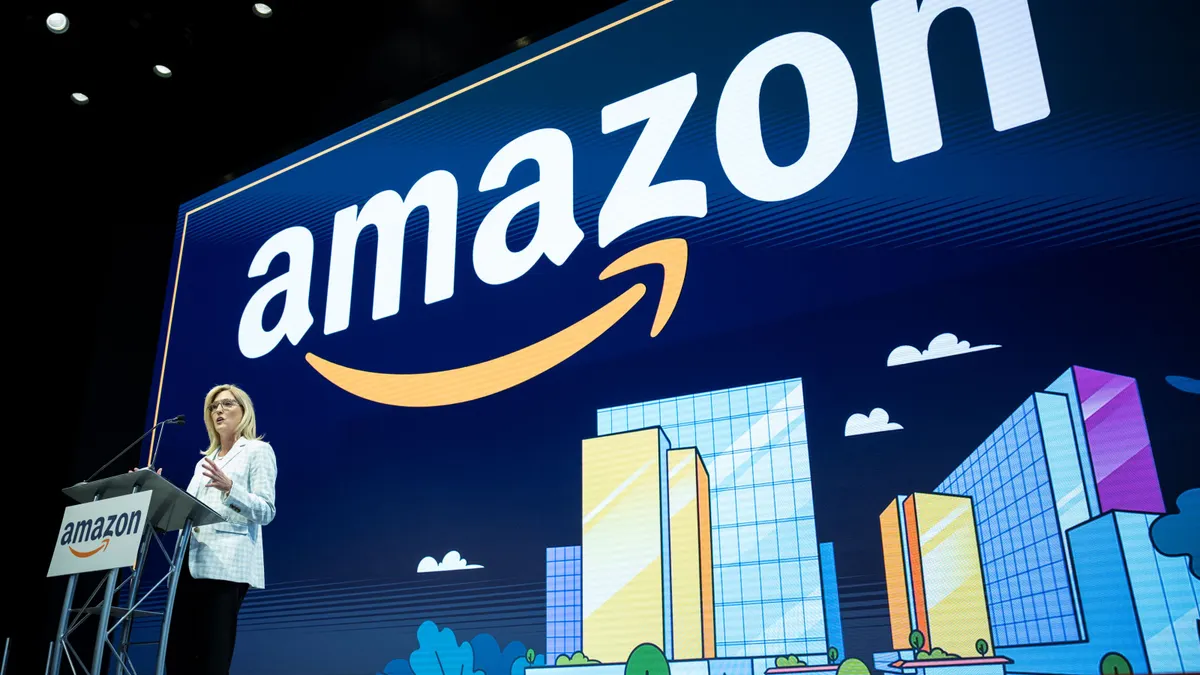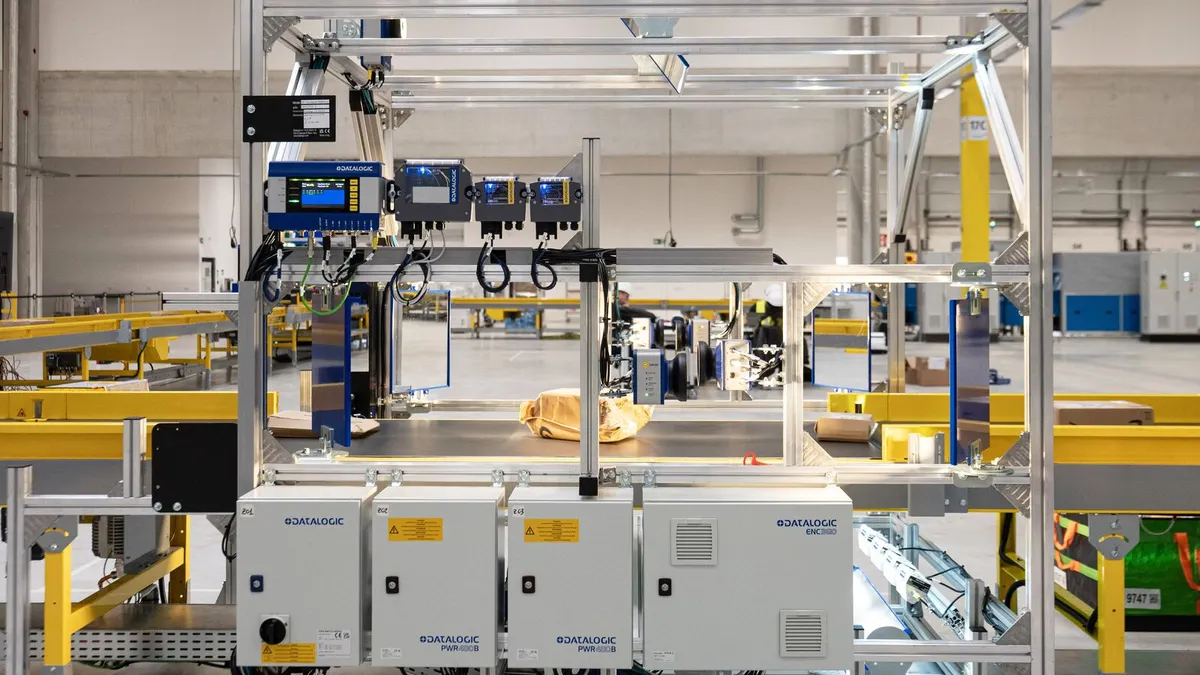Lauren Acoba is the VP of research at supply chain intelligence company Zero100. All opinions are the author’s own.
Over the past decade, most supply chain innovation has focused on last-mile delivery.
The alluring consumer proposition of ‘free and fast’ delivery helped propel online retail to new heights, but it also set the bar incredibly high, forcing businesses to invent creative new delivery methods and glean every last efficiency from their logistics and distribution processes.
Since then, numerous last-mile innovations have fallen by the wayside — from roadside drones to 15-minute grocery deliveries. But for all the creative ideas, running and maintaining an efficient operation remains massively expensive. Just ask Amazon, which is currently investing $5 billion upgrading its U.S. fleet.
In the context of complex global business operations, last-mile innovations barely move the dial on productivity and profitability. Where we should really be looking is the very start of the supply chain: the first mile.
Putting first-mile, first
The first mile of the supply chain encompasses everything from product development and lifecycle management to regenerative materials and carbon reduction. By achieving gains in these areas, companies can bolster the entire supply chain by building resilience, decarbonizing and preventing reputational risks before they manifest.
Most business leaders agree that the global supply chains of the future will be AI-powered and have full end-to-end digitization. While it is tempting to focus on innovation efforts on customer-facing supply chain operations, savvy chief supply chain officers and COOs are now choosing to prioritize first-mile reinvention, where the scope for innovation is broadest.
And some of the world’s biggest companies are already approaching the challenge of first-mile invention in bold and imaginative ways.
Danone goes digital
Between 2019 and 2021, global food company Danone introduced 20 digital solutions into its baby food factory in Poland, including advanced robotics, AI-based planning and scheduling, and threaded collaboration.
The factory's achievements were remarkable. Manufacturing costs were reduced by 19%, greenhouse gas emissions were lowered by 50%, energy consumption was cut by 23%, and efficiency improved 12%.
The results weren’t just incremental gains — they were game-changing production improvements, and it’s no surprise that Danone has since rolled out the suite of solutions to 39 factories across Europe through its Digital Manufacturing Acceleration program.
Shein’s self-learning supply chain
While Danone used digital tools to unlock production efficiencies, Shein used AI to rewrite the whole production and planning process. The fast fashion giant heads up a cohort of largely China-based innovators pioneering highly responsive business models that adapt near instantaneously to changing consumer demand. The model enables the company to produce thousands of new product designs per day.
While Shein’s record on sustainability and human rights makes it a controversial leader, its first-mile reinvention credentials are second to none. Applying its AI innovations to other use cases could transform not just supply chains but the whole supply-demand paradigm.
Particularly instructive is Shein’s approach to regenerative business planning, or RBP, which is a type of sales and operations planning that is adaptive, integrative and self-learning.
Shein’s RBP is a multi-tier digital platform that forecasts demand with AI and machine learning algorithms and then develops and distributes products through a lean workflow and a responsive network of suppliers. This explains how Shein turns a higher inventory every month compared to the industry average of every quarter.
AI redefines the innovation landscape
AI is the heart of first-mile reinvention. A recent Zero100 analysis found 16% of companies had established AI use cases in planning, from demand forecasting to replenishment and allocation. Findings also showed 17% of use cases are found in sourcing, including purchasing, contract lifecycle management and supplier relationship management.
Crucially, in over 20 global planning transformations across multiple industries, the Zero100 analysis found that AI's predictive capabilities drove 10% to 50% absolute improvement in forecast accuracy, with commensurate improvements in revenues, costs and cash.
Likewise, digital simulation and inventory optimization delivered vast cost and efficiency savings by avoiding overproduction. In Shein’s case, AI-powered RBP has allowed it to reduce unsold inventory to under 2%.
Ready to reinvent?
From disruptors using AI to make low-carbon cement from industrial waste to global giants minimizing food waste with high-tech sensor-based sorting machines, the pursuit of first-mile reinvention is turning the antiquated Supply Chain Operations Reference model of ‘plan, source, make, deliver’ on its head.
In its place, we’re seeing the rise of fully digitized, sustainable business models that connect the supply chain (source, make, move) to the demand chain (sell, use, regenerate) in an infinite productivity and efficiency loop.
This is the future of the supply chain. And, from an investment perspective, it all starts with first-mile reinvention, where the innovation possibilities are boundless and where the business impact will be most pronounced.
The message for companies seeking supply chain transformation is clear: Those who don’t invest in the first mile will likely finish last.








